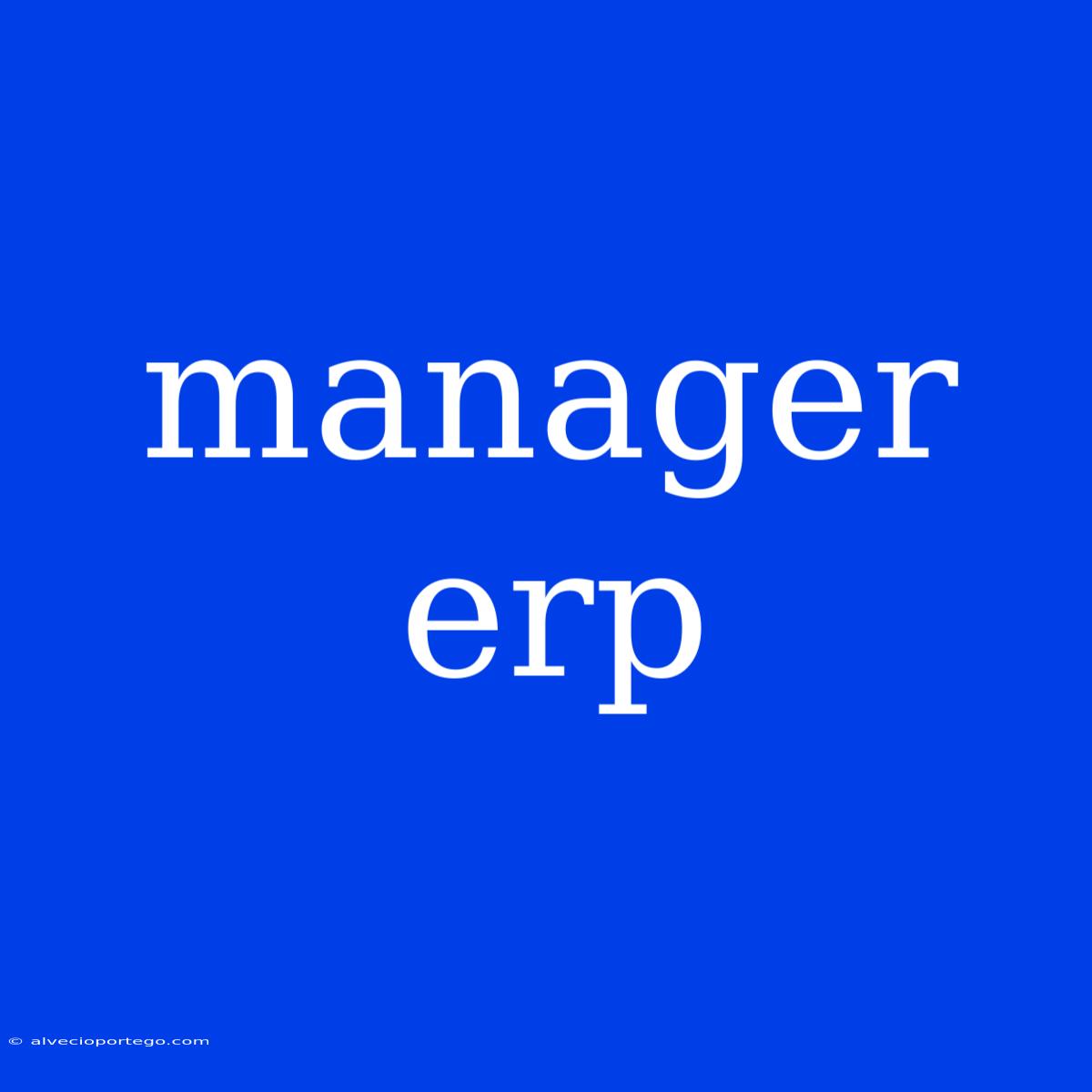The Essential Guide to ERP Managers
An ERP Manager is a crucial role in any organization that utilizes Enterprise Resource Planning (ERP) systems. They are responsible for the overall management, implementation, and optimization of the ERP system, ensuring it aligns with the organization's strategic goals and drives operational efficiency.
What does an ERP Manager do?
The responsibilities of an ERP Manager are diverse and often include:
1. Strategy and Planning:
- Developing and executing the ERP strategy: This involves aligning the ERP system with the organization's strategic objectives, defining key performance indicators (KPIs), and setting goals for ERP system utilization.
- Leading the ERP roadmap: Creating and maintaining a roadmap that outlines the future development, upgrades, and enhancements of the ERP system.
- Budgeting and resource allocation: Managing the budget for ERP operations, including software licensing, hardware, and staff training.
2. Implementation and Maintenance:
- Overseeing ERP implementations: Leading and coordinating the successful implementation of new ERP systems or modules, ensuring smooth transitions and minimal disruption to operations.
- Managing ERP updates and upgrades: Keeping the ERP system up-to-date with the latest patches, upgrades, and features to ensure optimal performance and security.
- Troubleshooting and resolving issues: Identifying and resolving any issues or bugs within the ERP system, ensuring its smooth and uninterrupted operation.
3. User Management and Training:
- Managing user access and permissions: Ensuring that only authorized users have access to specific functionalities and data within the ERP system.
- Providing user training and support: Conducting training programs and providing ongoing support to users, enabling them to effectively utilize the ERP system and maximize its benefits.
- Developing user manuals and documentation: Creating clear and comprehensive user manuals and documentation to aid users in understanding and utilizing the ERP system.
4. Data Management and Reporting:
- Ensuring data integrity and security: Implementing robust data security measures to protect sensitive information within the ERP system and maintaining data accuracy through regular audits and validations.
- Creating and analyzing reports: Generating reports based on ERP data to track performance, identify trends, and make informed decisions.
- Developing dashboards and visualizations: Creating visual dashboards and reports that provide clear and concise insights into key business metrics and performance indicators.
Skills and Qualifications:
A successful ERP Manager possesses a combination of technical and managerial skills, including:
- Strong understanding of ERP systems: In-depth knowledge of ERP concepts, functionalities, and best practices.
- Technical expertise: Familiarity with databases, software development, and related technologies.
- Project management skills: Ability to plan, organize, and execute ERP implementation and maintenance projects.
- Communication and interpersonal skills: Effective communication and collaboration skills to work with stakeholders, including users, IT teams, and management.
- Analytical and problem-solving skills: Ability to analyze data, identify trends, and resolve technical issues within the ERP system.
Career Path:
An ERP Manager career path can lead to roles such as:
- ERP Consultant: Providing expert advice and guidance to organizations on ERP system selection, implementation, and optimization.
- IT Director: Leading the overall IT strategy and operations of an organization.
- Chief Information Officer (CIO): Managing the organization's technology strategy and ensuring it aligns with business goals.
Conclusion:
The ERP Manager plays a vital role in ensuring the success and efficiency of any organization that relies on an ERP system. By effectively managing the ERP system and its implementation, they contribute to improved business processes, data insights, and overall organizational performance.

